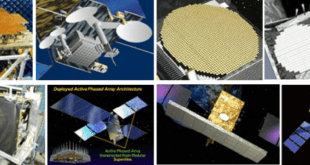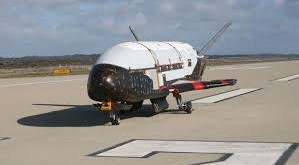Introduction
Space exploration and colonization have long captured the imagination of both scientists and science fiction enthusiasts. While it once seemed like a distant dream, recent advancements in technology and the growing interest from both government agencies and private companies have brought space exploration closer to reality than ever before. Within this exciting field, academia plays a crucial role, contributing knowledge, expertise, and innovative ideas that are shaping the future of space exploration and colonization.
1. Advancing Scientific Knowledge
One of the primary contributions of academia to space exploration is the advancement of scientific knowledge. Universities and research institutions worldwide conduct studies on a wide range of topics related to space, from understanding the effects of microgravity on the human body to exploring the geology of celestial bodies like Mars and the Moon. These studies not only expand our understanding of the cosmos but also provide valuable insights for planning future missions.
For example, researchers in fields such as astronomy, astrophysics, and planetary science regularly make discoveries that inform mission planning. Their work helps identify promising targets for exploration, assesses the potential habitability of other celestial bodies, and uncovers the mysteries of the universe. Moreover, academic institutions often collaborate with space agencies and private companies to design and develop scientific instruments and experiments for space missions, contributing to our ability to explore and colonize space.
2. Developing Cutting-Edge Technologies
Academia also plays a pivotal role in the development of cutting-edge technologies that are essential for space exploration and colonization. Many universities have engineering and technology departments dedicated to space-related research. These departments work on projects ranging from spacecraft design and propulsion systems to life support technologies and resource utilization.
As an example, consider the development of advanced propulsion systems like ion drives and nuclear propulsion. Researchers in academia explore the theoretical foundations of these technologies and work on their practical applications. Their efforts contribute to making space travel more efficient and feasible for long-duration missions, including those aimed at colonization. Moreover, universities serve as incubators for innovative startups that develop and commercialize space technologies, further driving progress in the field.
3. Preparing the Next Generation
Perhaps the most important role of academia in space exploration and colonization is educating and inspiring the next generation of scientists, engineers, and astronauts. Many students are drawn to STEM (Science, Technology, Engineering, and Mathematics) disciplines because of their fascination with space. Universities provide them with the knowledge, skills, and opportunities they need to pursue careers in space-related fields.
In addition to formal education, academic institutions often host space-related events, competitions, and research opportunities for students. These experiences not only prepare future space professionals but also foster a culture of curiosity and innovation that is essential for pushing the boundaries of space exploration.
Challenges face by Academia
Academia’s contributions to space exploration and colonization are invaluable, but they do face significant challenges along the way. One of the most pressing issues is funding. Space exploration requires vast financial resources, and academia often struggles to secure the necessary funding for ambitious research projects and technology development. With competing priorities and limited budgets, universities and research institutions must navigate a highly competitive landscape to secure the financial support needed to advance their space-related initiatives.
Another challenge arises from the growing influence of private industry in space endeavors. While academia has traditionally been at the forefront of space research, private companies are increasingly active in developing and deploying space technologies. These companies often have more agile structures and access to substantial resources, allowing them to progress rapidly in the space sector. Academia must find ways to collaborate and compete effectively with private industry to remain at the cutting edge of space exploration.
Public support is also a variable challenge. The level of enthusiasm and funding for space exploration can fluctuate over time, influenced by changing political climates and public sentiment. This unpredictability can make it challenging for academia to plan and execute long-term space research and colonization projects. Maintaining consistent public support and advocacy for space exploration is essential for the sustainability of academic efforts in this field.
Despite these formidable challenges, academia remains a cornerstone of space exploration and colonization. Academic institutions are at the forefront of developing new technologies, training the next generation of space scientists and engineers, and conducting critical research on the space environment. By addressing funding constraints, collaborating effectively with private industry, and advocating for the importance of space exploration, academia can continue to contribute significantly to humanity’s quest to explore and eventually colonize the cosmos.
Recent Contributions
In recent years, academia has made significant contributions to space exploration and colonization through various breakthroughs and discoveries. While the field of space exploration is vast, here are some notable recent achievements and breakthroughs:
- Exoplanet Discoveries: Astronomers from universities and research institutions worldwide have been instrumental in discovering thousands of exoplanets (planets outside our solar system). These discoveries, made using advanced telescopes and data analysis techniques, provide valuable insights into the potential habitability of other worlds and the prevalence of Earth-like planets.
- Mars Exploration: Academic institutions have played a crucial role in Mars exploration missions. For instance, the Mars Science Laboratory mission, which includes the Curiosity rover, involved scientists and engineers from various universities. Curiosity has made groundbreaking discoveries about the Martian environment and the possibility of past habitability.
- Astrobiology Research: Researchers in astrobiology, often associated with universities and research centers, have made strides in understanding the conditions necessary for life to exist beyond Earth. This knowledge informs the search for life on Mars, Europa (a moon of Jupiter), and Enceladus (a moon of Saturn), which are considered potential habitats for extraterrestrial life.
- Space Telescopes: Academia has contributed to the development and operation of space telescopes that have expanded our understanding of the universe. For example, the Hubble Space Telescope, operated in collaboration with several universities, has provided breathtaking images and valuable data about distant galaxies, dark matter, and cosmic expansion.
- Lunar Exploration: Universities and academic institutions are actively involved in lunar exploration efforts. Recent missions, like NASA’s Artemis program and China’s Chang’e missions, have included collaborations with academic researchers to study the Moon’s geology, resources, and potential for future human colonization.
- Conducting research on the space environment: Academics conduct research on a wide range of topics related to the space environment, such as the effects of radiation on the human body, the resources that are available on other planets and moons, and the risks posed by asteroids and comets. This research is essential for developing safe and sustainable ways to explore and colonize space
- Space Medicine and Human Health: Research conducted by academic institutions contributes to understanding the effects of space travel on the human body. This knowledge is vital for planning long-duration missions, such as those to Mars, and ensuring the health and well-being of astronauts during space travel.
- New types of space propulsion: One of the most important areas of research in academia is space propulsion. Scientists are developing new types of engines that could allow us to travel to Mars and other planets much faster than we can today. Researchers at the University of Washington are developing a new type of space propulsion system that uses microwaves to accelerate plasma. This system could potentially propel spacecraft to Mars in just three months, compared to the six months it takes with current propulsion systems. They are also working on developing new types of fuel that are more efficient and less hazardous than traditional rocket fuels.
- Self-repairing space habitats: Another important area of research is space habitats. Scientists and engineers are developing new ways to build and maintain habitats that can support human life in space for long periods of time. They are also working on developing new technologies to protect astronauts from the harsh environment of space. Researchers at the Massachusetts Institute of Technology (MIT) are developing a new type of space habitat that can repair itself using 3D printing. This would make it much easier to maintain and repair space habitats over long periods of time.
- Space Sustainability: Academics are increasingly involved in discussions about space sustainability and the responsible use of space resources. Researchers explore ways to minimize space debris, develop sustainable space policies, and promote international cooperation in space exploration.
- Water extraction from lunar soil: Researchers at the University of California, Berkeley have developed a new way to extract water from lunar soil. This could make it possible to produce water on the Moon, which is essential for supporting human life and exploration.
- Food production in space: Researchers at the University of Arizona are developing new ways to produce food in space. They are growing plants in microgravity and developing new types of food that are easy to store and transport.
- Artificial Intelligence (AI) in Space: Universities are at the forefront of developing AI and machine learning applications for space exploration. AI algorithms are used to process vast amounts of data from telescopes and spacecraft, aiding in the discovery of celestial objects and optimizing mission operations.
- Space Mining Technology: Academic research contributes to the development of technologies for asteroid and lunar mining. These efforts explore the feasibility of extracting resources like water, metals, and minerals from space bodies, which could be essential for future colonization efforts.
- Space Entrepreneurship: Universities are fostering entrepreneurship in the space sector. Academic incubators and programs support students and researchers in launching space-related startups, and driving innovation in space technology and business.
- Space tourism: Academia is also playing a role in the development of space tourism. For example, researchers at the University of Central Florida are developing new training programs for space tourists.
These are just a few examples of the many breakthroughs that academia is making in space exploration and colonization. These breakthroughs highlight the crucial role of academia in advancing our understanding of space, developing cutting-edge technologies, and preparing the next generation of space scientists and engineers.
Academia is playing a vital role in developing the new technologies and knowledge that will enable us to travel further into space and establish permanent human settlements on other worlds. As space exploration continues to evolve, academic institutions will remain central to pushing the boundaries of human knowledge and expanding our presence in the cosmos.
Conclusion
The future of space exploration and colonization holds incredible promise, and academia is at the forefront of this endeavor. Through scientific research, technological innovation, and education, universities and research institutions are shaping the path to humanity’s expansion beyond Earth. As academia continues to collaborate with space agencies, private companies, and international partners, we can look forward to a future where space exploration and colonization are not just science fiction dreams but remarkable realities.
 International Defense Security & Technology Your trusted Source for News, Research and Analysis
International Defense Security & Technology Your trusted Source for News, Research and Analysis

